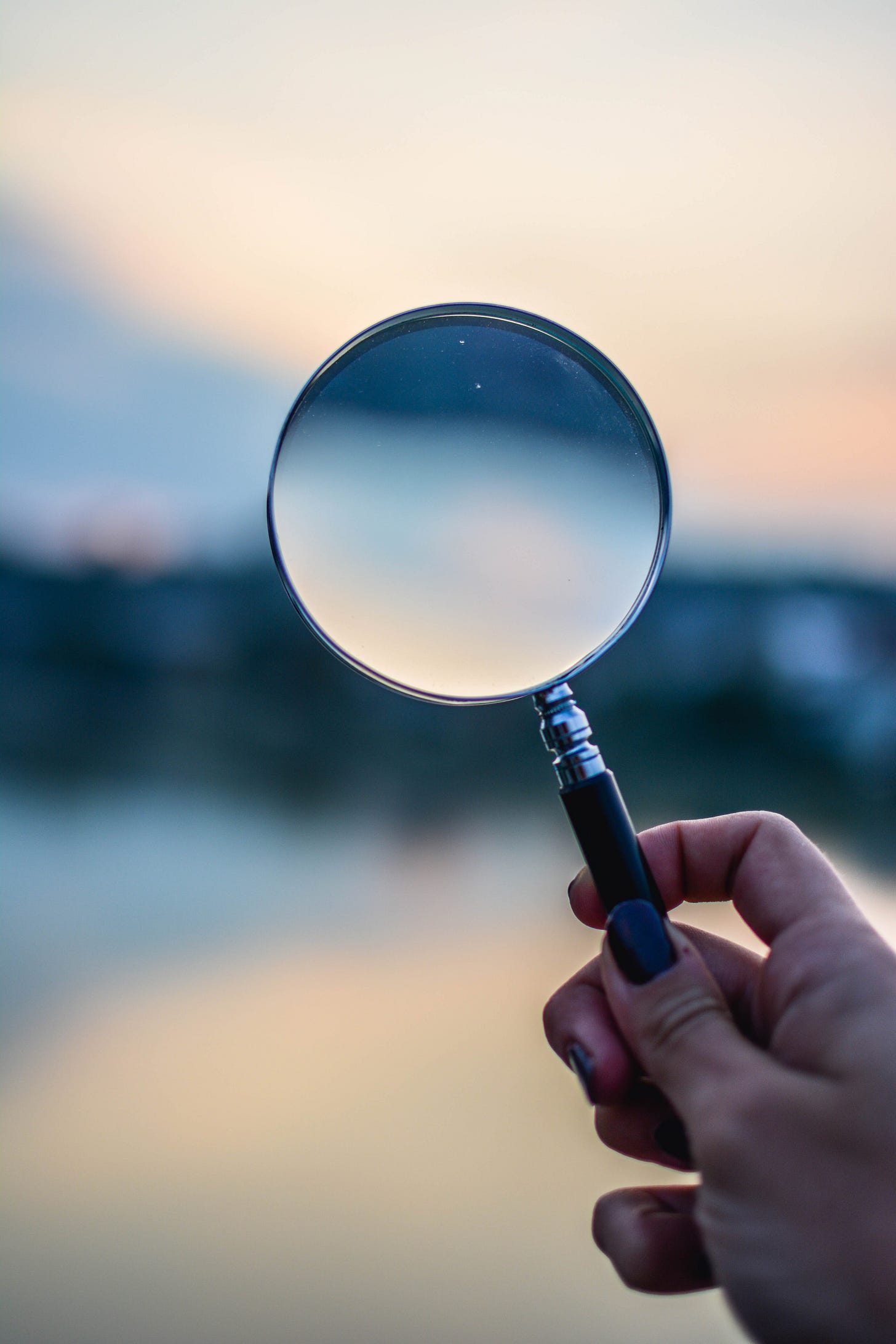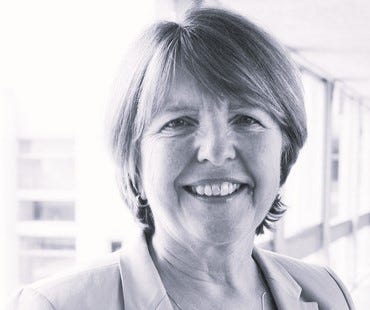To Break Impasse In Pandemic Accord Negotiations, Bring Neutral Countries To Forge Compromise [Guest Essay]; Editorial: The Role of Journalism in Global Health Diplomacy
Newsletter Edition #43 [Treaty Talks]
Hi,
Greetings from Sweden!
This week, I am here for the 2023 Global Investigative Journalism Conference, meeting fellow journalists and media founders.
The DNA of Geneva Health Files is that of a journalistic initiative, although we inhabit the world of global health. We find ourselves at the intersection of journalism and global health. While we function as media, we are dedicated to serving the niche community of global health experts world over.
Today we bring you an editorial on the role of journalism in global health diplomacy, a piece that was prompted by a recent discussion in Geneva over the summer. This has been published by newSpecial, edited by Garry Aslanyan.
Write to us with your thoughts. We’d like that.
We also bring you a guest essay from Dame Barbara Stocking who chairs the Panel for a Global Public Health Convention. She argues for more neutral countries to act as interlocutors in bringing countries together to narrow the divergences in the positions in current global health negotiations.
Like our work? Consider supporting our journalism that ensures nuance, detail, and accuracy. Readers paying for our work helps us meet our costs. Thank you for reading.
Until later!
Best,
Priti
Feel free to write to us: patnaik.reporting@gmail.com or genevahealthfiles@protonmail.com; Follow us on Twitter: @filesgeneva
I. GUEST ESSAY
To Break Impasse In Pandemic Accord Negotiations, Bring Neutral Countries To Forge Compromise
By Dame Barbara Stocking, Chair, Panel for a Global Public Health Convention
We are all aware that negotiations, particularly of the WHO CA+, but also to some extent the WG-IHR, are in a difficult place. The central issues of concern are of how low and middle income countries can access epidemic and pandemic countermeasures equitably, and also the nature of any pathogens access and benefits system. There are many issues within these two areas, including distributed production of countermeasures across the world, the technology transfer, TRIPS matters and the balance between equity and the need to ensure that research and innovation continues in the pharmaceutical industries.
Countries have taken firm positions but some progress has been made through informal Member State led sessions on the relevant Articles. Even there, concerns have been raised in some countries, particularly the poorer ones, that they simply do not have the resource to engage with so many meetings. These informals have at least increased understanding of what are the underlying concerns of particular Member States.
Behind the scenes some Member States are willing to say that there has to be compromise and will offer ideas. They may not, though, be prepared to say this more publicly because of the intransigence of the other side, as they perceive it.
Clearly if we want a WHO CA+ of any consequence this cannot continue. We, the Panel for a Global Public Health Convention, would like to propose an additional approach that might help us through. In other circumstances, eg the Pandemic Influenza Preparedness Framework, we know that it has been possible for some Member States to bring people together to try to find compromise. We believe something similar might work here.
What we need is a small group of Member States who are in more neutral positions on these two issues and above all are trusted for their independence and integrity. This group could act as go-betweens on ideas, not necessarily acknowledging yet where they came from. They could then see if some possible and balanced compromises might be found. This work requires some States to come forward and be accepted by the majority on both sides.
This is a considerable and urgent amount of work but the time is right. The lack of a way forward on these particular issues is delaying real negotiations on other matters, too.
We would ask urgently for this approach to be considered in the absence of other ways forward at this time.

II. THE GHF EDITORIAL
The role of journalism in global health diplomacy
Do journalists have a role to play in global health diplomacy?
I was a part of a recent discussion in Geneva on a panel that delved into global health diplomacy with insights from diplomats and practitioners. This set me thinking on examining the responsibilities and the function of the media in global health diplomacy.
As journalists we are expected to illuminate the less-understood mechanics of power. This also holds true in the context of greater scrutiny of global health policy-making, given the closed and cloistered settings of the global health ecosystem in Geneva.
The pandemic of COVID-19 has cast a somewhat harsh light on Geneva and the processes associated with global health actors including but not limited to, the World Health Organisation, the World Trade Organization, Gavi – The Vaccine Alliance and The Global Fund, among many others. I believe this attention to global health policy-making - in many ways long-due - is now here to stay.
The ubiquitous health crisis that COVID-19 was, became an inflection point for global health diplomacy forging collective action at political levels across countries to pay more attention to health priorities within governments. Accordingly, journalism has become a catalyst in contributing to some of these processes. World over, journalists have asked questions of their governments around the lack of preparedness and the perceived failure of state response to COVID-19 in many countries. They have consistently pushed for accountability from various actors at national, regional and international levels, and often at grave personal costs.
More than ever before, technology coupled with greater awareness and agency, have empowered the media to play a more pronounced role in the shaping of global health policy-making by raising questions around the technical and opaque discussions in these multi-layered processes.
WHY DIPLOMACY NEEDS JOURNALISM?
Given the uneven capacities of delegations at the permanents missions of countries here in Geneva, there has been a need for greater information and analyses on policy-making that takes place here.
I founded Geneva Health Files, in early 2020, just as WHO declared COVID-19 a pandemic. I had long felt the need for consistent reporting and comprehensive analysis of global health discussions in Geneva. I was compelled to act. I did so, by self-publishing at a time when it appeared as if global health was being recast every other week.
Based on my limited experience of founding and running this entrepreneurial initiative for more than three years now, I believe that journalism has a crucial role to play in shining light on the field of global health, its actors, and the state of play on how global health policies are crafted at an international level. Journalism can and should have an impact on diplomacy in Geneva and beyond.
We have tracked how the international community responded to the pandemic of COVID-19. We have consistently kept an ear to the ground, by talking to a range of diplomatic sources across the spectrum to get a sense of the deliberations as they unfold. In the process, we have provided a service to not only diplomats and negotiators in Geneva, but thousands of readers globally, who are keenly watching how global health policy is being shaped here.
Global health journalism largely speaks the language of science. We sought to change that by also reflecting the power and politics underlying these seemingly technical choices in global health that are often presented as apolitical. In our reporting, it has been our efforts to also pay attention to the politics in policy-making.
At Geneva Health Files, we look at the field of global health from the lens of politics, law, governance and diplomacy, without limiting ourselves to the fundamental scientific basis of this discipline. In fact, our unique selling proposition is using an inter-disciplinary approach to reporting on global health and providing actionable information to our readers. We try to capture the vast space that global health as a field occupies, for it touches several aspects at once.
For three years, we have tracked negotiations at the WTO and now at the WHO in the wake of the policy response to the pandemic of COVID-19 from these organizations. By merely bringing to the forefront some of these closed-door discussions, we have raised and highlighted critical questions. Our reportage has not only aided smaller delegations, civil society actors, scholars in the field, but also large delegations of developed countries, some of whom are our regular readers. Since we connect the dots across policy spheres, our reporting has been useful to diplomats.
There is value in our journalism that seeks to furnish actionable information that directly feeds into the work of the diplomatic community engaged in global health in Geneva and beyond. This is demonstrated by the engagement of our readership that comprises a community of global health professionals. We at Geneva Health Files are proud to have created this platform. Experts routinely write for us in order to reach thousands of our readers across more than 130 countries.
The larger goal has always been to contribute to greater accountability and transparency in global health policy-making in Geneva, often perceived as being far removed from national and local realities at the country level.

PRACTICING JOURNALISM IN A POLITICAL PROCESS
I have also been asked if we exercise power by elevating certain voices over the rest.
There are two considerations in how we source and cite.
One is respecting expertise in the sources we cite. Remember that journalism as a practice entails discretion and responsibility. In a climate where experts have been shunned in populist democracies, this is vital. I am firmly of the view that we exercise discretion and deploy our own agency in bringing facts and analyses on under-reported issues.
The other is, paying attention to the diversity in the narrative and who is being cited. We are acutely aware, of what some scholars refer to as “epistemic injustice”, where certain voices routinely get ignored or are underrepresented leading to exclusion and misrepresentation of meanings. We seek to address this in our journalism.
We continuously exercise judgement in our reporting. For example, while reporting on the various stages of on-going negotiations in global health, we also keep in mind our responsibility as journalists. While the goal is to provide information, we do so without harming the larger objective of what countries are trying to do behind-the-scenes during the political process that global health policy-making is. This is often a complex choice that involves some thinking and taking a step back, without betraying our readers’ right to know.
To be sure, as a self-publisher, we are also aware of the risks of being at the receiving end. Our access has been threatened in the past. And we are mindful of the battles we pick even as we have to provide a service that feeds directly into the work of our readers.
Our gaze as an outsider, providing synthesis of what we observe has been useful to our readers. We are constantly challenging mainstream narratives, so while that makes us unpopular in certain quarters perhaps, a vast variety of readers continue to read us as illustrated by our high retention rates.
Given the sensitive nature of global health diplomacy, at Geneva Health Files, we also follow the practice of not naming diplomatic sources – something that is de jure even among the big news outlets. Anonymity is central to diplomats, for it enables them to share their views and insights without fear of losing their identity.
This also, to an extent explains, why sources speak with us. Trust is the only currency that small newsrooms such as ours have. After nearly 400 long-form analyses on global health over the last three years, institutions and diplomats do see us that we are here for the long haul. The sheer breadth of our readership shows that we are trusted across the board given our attention to detail and the depth in our coverage.
To be sure, journalists are also often seen merely as tools to disseminate information. We are aware of how certain issues or narratives can be used to hook reporters. But all good journalism is conscious of this, while balancing with the role that media outlets are expected to play.
Having an open mind is crucial for objectivity, but it is more than that. Our own analysis of facts, independent investigations, and examining the narrative behind the facts, collectively inform our editorial decisions. The golden rule of robust journalistic practice is to confirm facts with multiple checks and verifications and to diversify sourcing. We also employ a fair degree of self-reflexivity while practising our craft.
SOOTHE NOT FLARE
Finally, I do believe that more journalists should look at connecting foreign policy matters to health. There is a need to look at health more broadly, beyond the narrow confines of how journalists traditionally covered these issues, such as looking at this field along vertical diseases, or technical interventions, for example. As a former financial journalist, I am struck by how closely integrated economics and health is, and yet there is inadequate media attention on looking at these issues as a whole.
Given the polarized narratives and fragmented geopolitical fissures often felt in Geneva, journalism must bring facts to light. Information is sunlight. While misinformation and fake news have jeopardised scientific temper and imperiled democratic efforts, it goes without saying that journalism needs to contribute to diplomatic efforts and not flare existing tensions.
THE INDEPENDENCE OF THE MEDIA
Media’s ability to engage is fully dependent on whether journalists can actually afford to play a role in the first place. While advertising dollars have dried up and choked the media industry in recent years, new business models are taking shape, some of them being supported by readers themselves.
In the case of Geneva Health Files, we are an independent journalistic initiative that keep us objective and enables us to raise questions. However, this independence also dictates the way we are funded. The fundamental reader-funded nature of this initiative by way of subscriptions, is vital and central. We are cautious about ethical considerations, and the kind of grant funding we can receive given the political nature of global health itself. Our hope is that more of our readers become paying subscribers to fund this public service journalism.
Everyone has a stake in understanding global health diplomacy and journalism is one of the means to that end.
III. WHAT WE ARE READING
UNGA: Political Declaration on pandemic pays lip service to equity: TWN
UNGA: 11 countries object to the adoption of 4 high level political declarations: TWN
An Integrated Health, Trade and IP Approach to Respond to the COVID‑19 Pandemic: WIPO, WTO, WHO
Blocs, the BRICS, and Global Health: Think Global Health
Pandemic Lessons Compendium: Health Justice Initiative
IV. WE ARE KEEPING AN EYE ON:
UN General Assembly High-Level Meetings on health 2023: Watch here - September 20-22
WHO: Resumed meeting of the INB drafting group - September 22
WIPO: 5th Conversation on Intellectual Property and Health for Health Attachés on International and national examples of access to public funded research and development - September 25
WTO: Meeting of the TRIPS Council - Informal Thematic Session - September 28
Global health is everybody’s business. Help us probe the dynamics where science and politics interface with interests. Support investigative global health journalism.






I think it is pretty clear that, at best, the WHO is woefully incompetent, or, at worst, positively harmful to the people of the world. The countries of the world need (1) to withdraw from the WHO, (2) to defund the WHO, and (3) to repeal the legislation that created the WHO. That might offend the globalist banksters at the BIS, the Bank of England, and the U.S. Federal Reserve, but the rest of humanity will sleep more soundly.
dear lady, I am very disturbed by your insistence that the who should be in charge of the health care of all nations. They were a miserable failure here in the United States. I suspect you are aware of the facts I am about to state, but just in case you are not, let me acquaint you with them. This who insisted the U.S. subject its' people to the china model. Masks do not protect any one from either getting covid 19 or from spreading it to others. It was deliberately managed in such a way as to run up the death count to where they could call a pandemic by putting known infected patients in nursing homes, where they knew people were most susceptible to the disease. This was done by 5 governors of states. Children are least susceptible yet they were subjected to school closings which caused them psychological harm and they are now required to have child hood vaccinations against this disease when they really do not need it. The so-called vaccines caused more deaths than the disease itself and the hospitals were all expected to follow treatment protocols that also brought about many deaths needlessly. We were and still are seeing young, otherwise healthy male athletes drop dead from heart attacks and the cause of death became known as the vaccines specificcaly Pfizer. Several other pharmaceutical companies were also involved in this scheme. Once this became known our so-called news media has reported on these deaths but not reported on the cause of these deaths. We were denied medicines that were proven cures (ivermectin), and required to take such treatments as remsdesevere (also known to cause death). People were denied the knowledge of what these treatments would do and they were insufficiently tested before they were required of us. Due to these circumstances I will always oppose the who being in charge. The U.S. pulled out of the who when Pres. Trump was on office and should never have rejoined. The U.S. should both exit and defund the who. So should all other nations. They have proven themselves untrustworthy by causing damages that are irreparable.